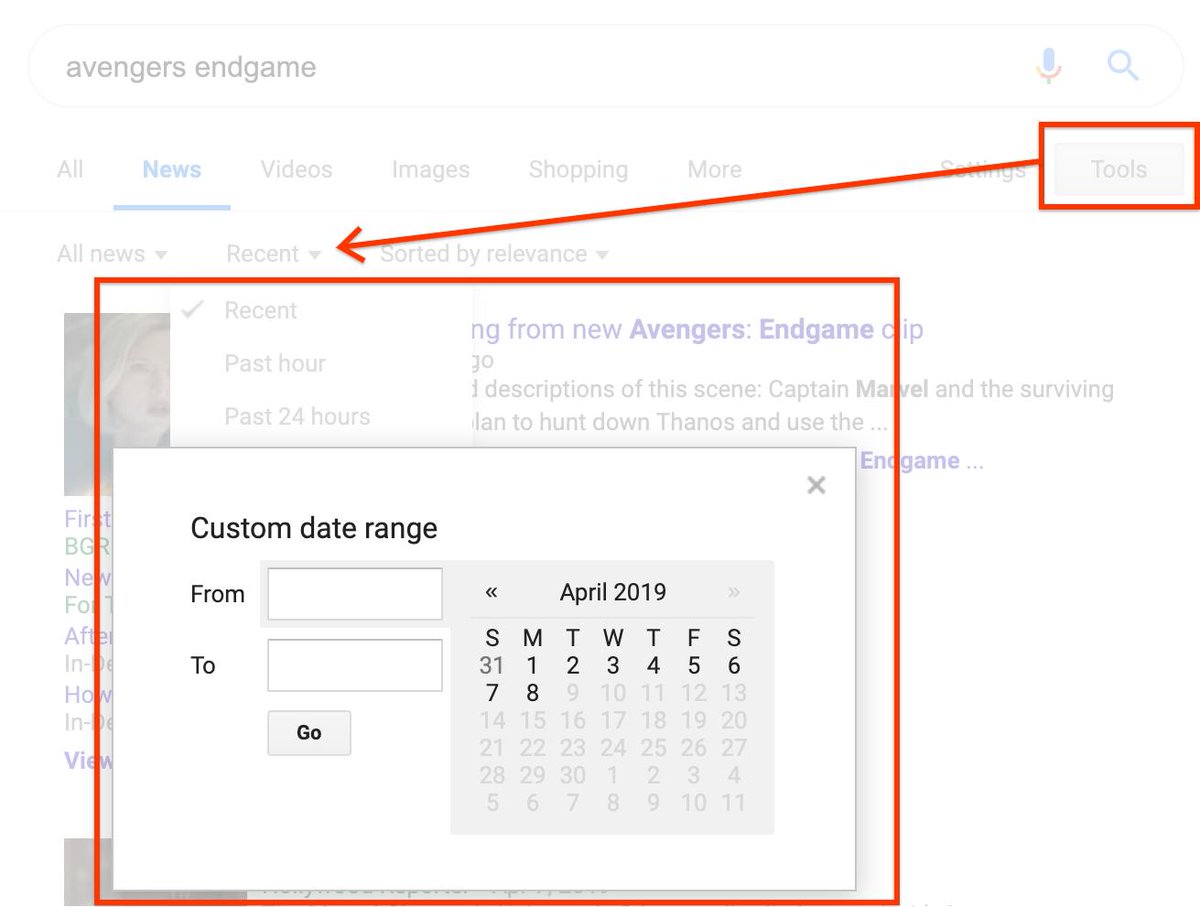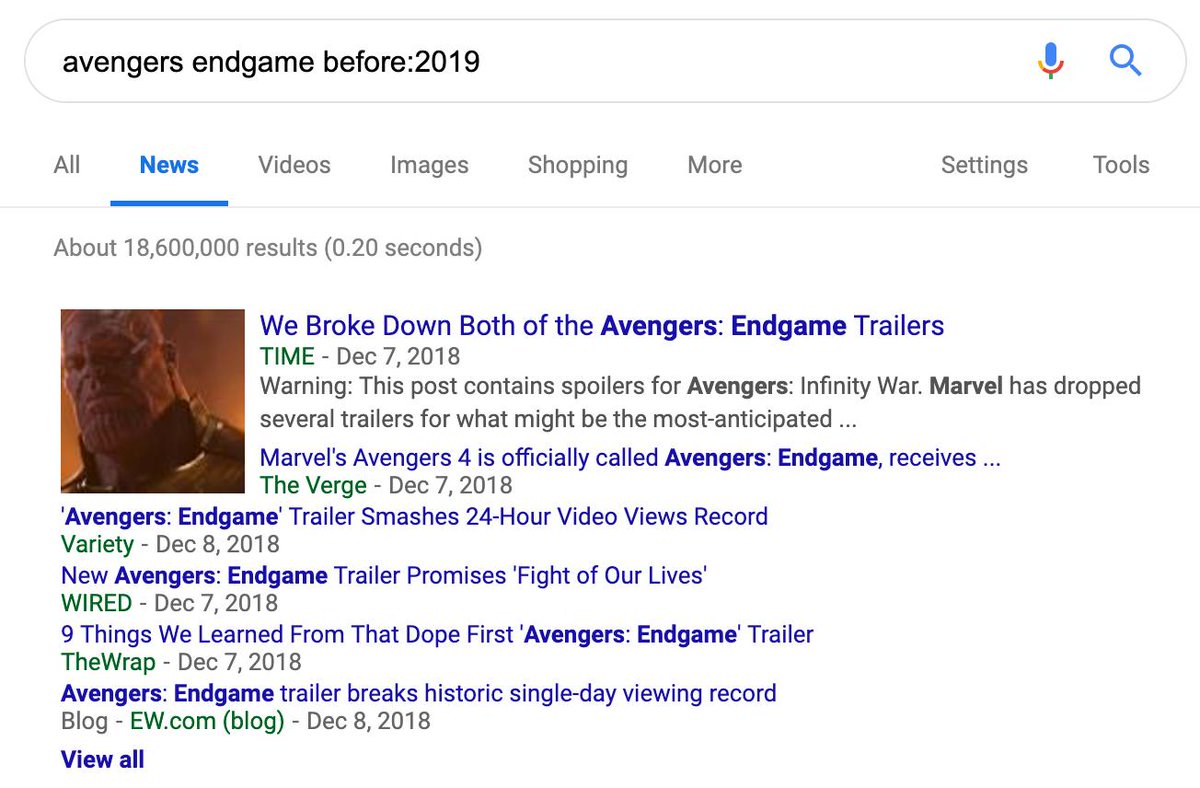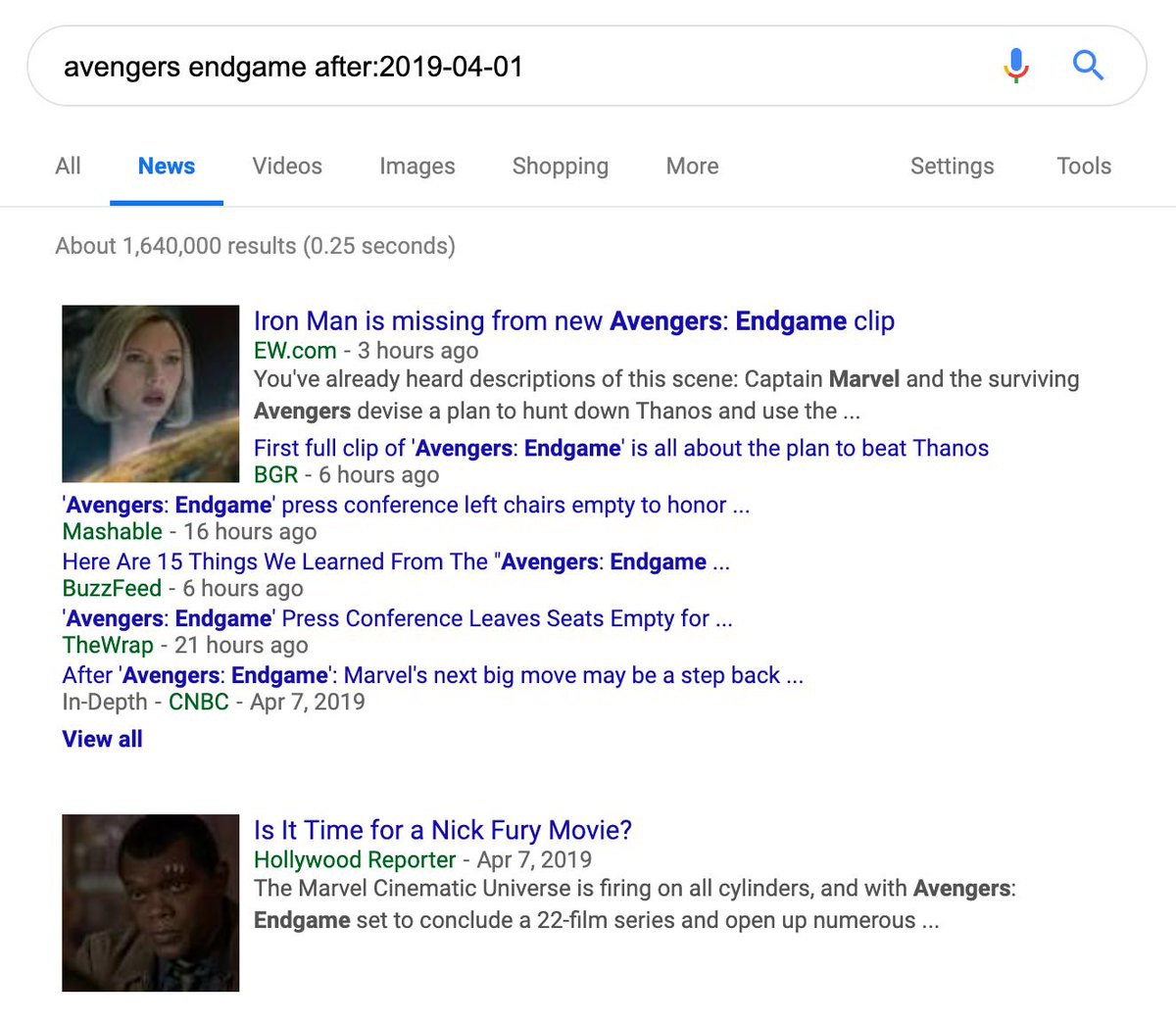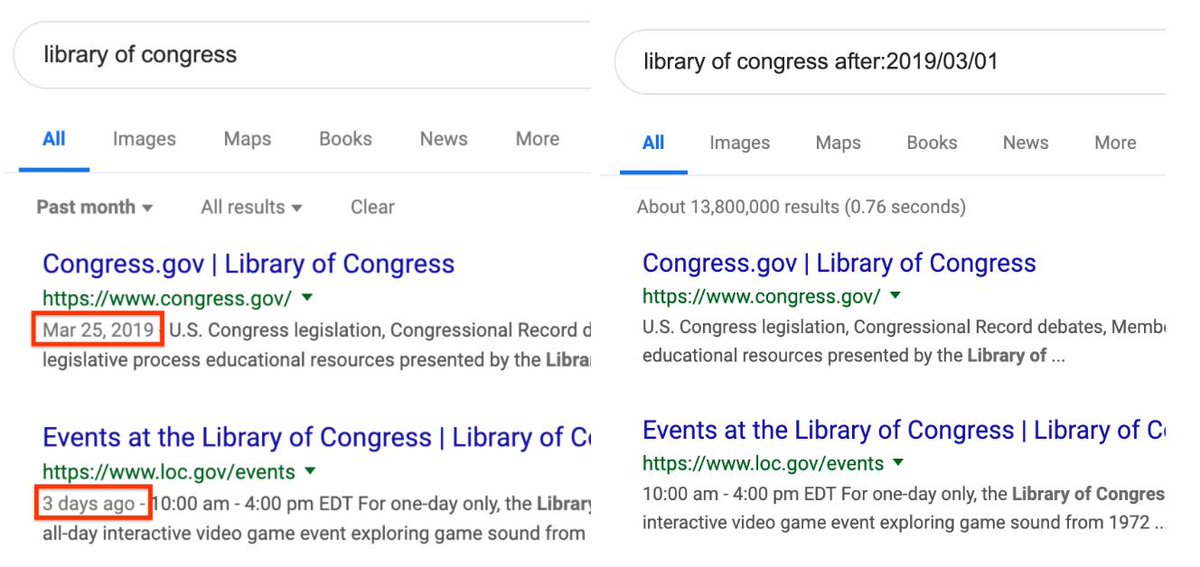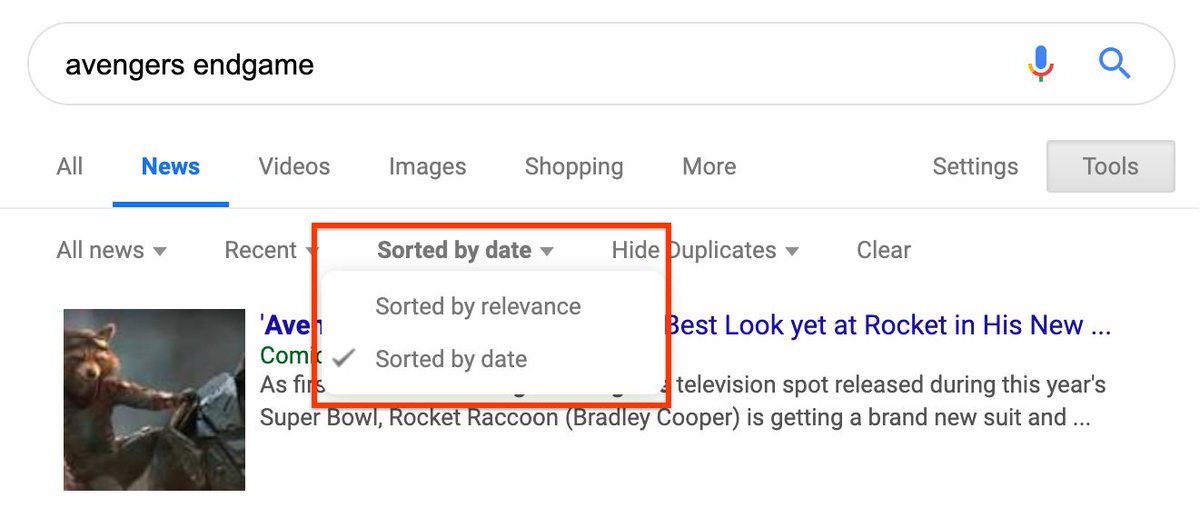nytimes.com/2007/06/03/bus…
We shared building on it in 2011:
googleblog.blogspot.com/2011/11/giving…
For most queries, it works well. But what if you want older info?....
[before:2018] =
[before:2018-01-01]
[after:2018] =
[after:2018-12-31]
2018-12-31
2018/12/31
You can also use a single digit for month or day, so all of these are valid:
2019-3-1
2019-3-12
2019-03-01
